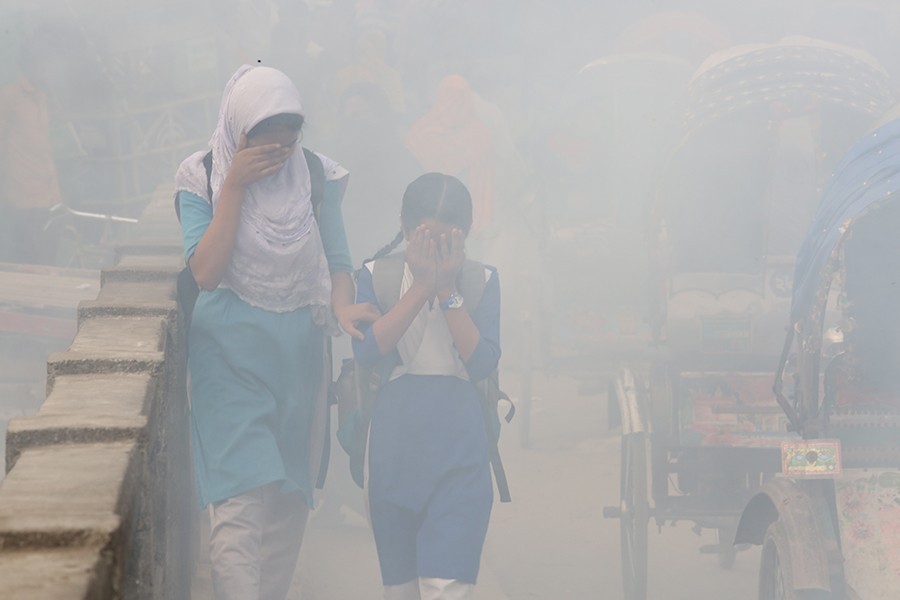Air pollution reduces global life expectancy by nearly two years putting Bangladesh at the centre of threat, a new analysis of data from the Air Quality Life Index has found.
The analysis of Air Quality Life Index was conducted by the Energy Policy Institute at the University of Chicago (EPIC).
Nearly a quarter of the global population lives in four countries in South Asia that are among the world’s most polluted-- Bangladesh, India, Nepal and Pakistan, the study published by the University of Chicago read.
People living in these countries could see their lives cut short by five years on average, after being exposed to pollution levels that are now 44 per cent higher than they were two decades ago.
“High pollution across the entirety of Bangladesh makes it the most polluted country in the world. The most severe pollution, however, is found in parts of India, especially northern India, including the megacities of Delhi and Kolkata,” it read.
Particulate pollution is also a significant concern in Southeast Asia, where traditional pollution sources such as vehicles, powerplants and industries combine with forest and cropland fires to produce deadly concentrations.
As a result, 89 per cent of Southeast Asia’s 650 million people live in areas where particulate pollution exceeds the WHO guideline. Growing metropolises—such as Jakarta, Singapore, Ho Chi Minh and Bangkok—bear the greatest burden.
“Though the threat of coronavirus is grave and deserves every bit of the attention it is receiving—perhaps more in some places—embracing the seriousness of air pollution with a similar vigour would allow billions of people around the world to lead longer and healthier lives,” said Professor Michael Greenstone, the director of EPIC.
“The reality is, no shot in the arm will alleviate air pollution. The solution lies in robust public policy. The AQLI tells citizens and policymakers how particulate pollution is affecting them and their communities and can be used to measure the benefits of policies to reduce pollution,” Professor Michael, also a leading economist whose research has focused on environmental quality, said.
Launched in 2018 by Greenstone and his EPIC colleagues, the Air Quality Life Index allows users to zoom in on any district in the world and understand the effects of that district’s local air pollution on life expectancy.
Working unseen inside the human body, particulate pollution has a more devastating impact on life expectancy than communicable diseases like tuberculosis and HIV/AIDS, behavioural killers like cigarette smoking, and even war.


